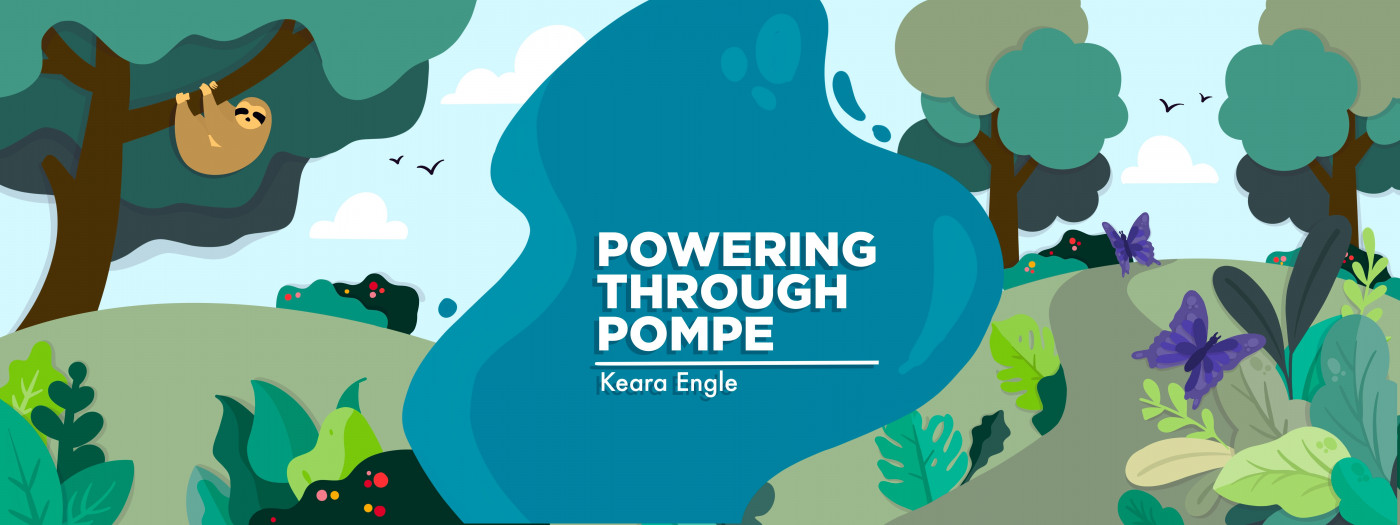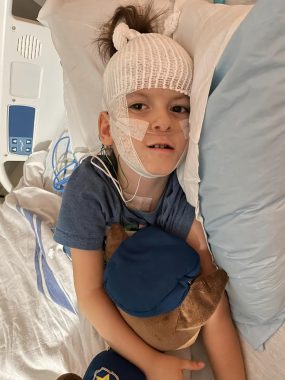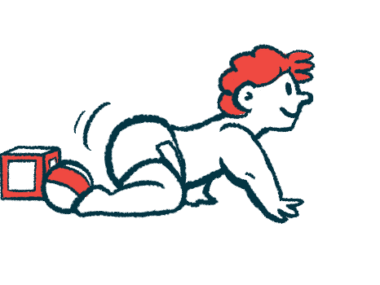Awaiting the Results of My Son’s Sleep Study to Track Sleep Disturbances in Pompe
A sleep study for children can gauge progress in treating infantile-onset Pompe disease
Written by |

My 4-year-old son, Cayden, had to do a sleep study this month. Although he’s done them before, it’s been over two years since his last one. At his most recent checkup, Cayden’s pulmonary doctor mentioned that he wanted Cayden to do another sleep study to see how things have changed since the last one.
Due to his weakened diaphragm, a common symptom of Pompe disease, Cayden sleeps with a BiPAP machine every night. While he’s grown accustomed to it over the years, it certainly would be great if it was no longer needed. But I won’t be disappointed if the results of the study show that he still needs to use the BiPAP, as it’s already a part of our daily routine.
Originally, the sleep study wasn’t scheduled until April of next year. That was a very long wait that I wasn’t too happy about. However, the hospital emailed me about a cancellation and said we could get in sooner if we took the appointment. Of course, I agreed without hesitation. I wanted to get the study done before Cayden’s little brother makes his arrival in the last week of December. So I am relieved the hospital was able to make it happen.
Getting there
The three-hour drive to the hospital was rough. We got stuck in a horrible rainstorm that caused a ton of traffic. It made me a bit nervous, but thankfully, we arrived safely. We usually receive medical transportation to these distant appointments, as it’s covered by Cayden’s insurance. However, I chose to drive this time because we weren’t supposed to arrive until 6:30 p.m., and our medical transportation doesn’t provide service past 4:30 p.m.
Once we arrived, we were led to the room where the sleep study would be conducted. They let us go to the cafeteria for dinner before getting settled into the room, which was something I looked forward to after a long and stressful car ride. After eating, we headed back to the room, and I filled out some paperwork and answered a bunch of questions. Then I got Cayden into his pajamas and started getting him settled down and ready for bed.
About a half hour before his bedtime, the staff came in to get everything hooked up for the study. They put tons of probes and monitors on his head, as well as some stickers on his chest and legs. All of these help them to get a good look at what’s going on with the body while he sleeps. Cayden was a little wary of it all at first, but then he calmed down and thought it was funny when they wrapped gauze around his head. We told him he looked like a mummy, which he thought was the coolest thing ever.

Cayden is all hooked up for the sleep study. (Photo by Keara Engle)
For the first half of the study, they let Cayden sleep without his BiPAP mask. His doctor wanted to see how he did without it. However, halfway through the night, they came into the room and put him on the BiPAP machine. I’m not sure if this was because he wasn’t doing so well without it, or if it was just a routine part of the study. Looking back, I wish I would have asked, but I was half asleep myself, so it completely slipped my mind.
At 5:30 a.m., they came in to tell us that it was time to wrap up the study. Although it was early, I was ready to head home. The couch bed they had for parents to sleep on is not the most comfortable, especially considering I’m seven months pregnant.
We don’t have the results yet, as it’s only been a little over a week. They told us it usually takes 2-3 weeks for the doctor to get the results and discuss them with the patient or parent. I’m eager to see what the results say, but I won’t be disappointed either way.
Note: Pompe Disease News is strictly a news and information website about the disease. It does not provide medical advice, diagnosis, or treatment. This content is not intended to be a substitute for professional medical advice, diagnosis, or treatment. Always seek the advice of your physician or other qualified health provider with any questions you may have regarding a medical condition. Never disregard professional medical advice or delay in seeking it because of something you have read on this website. The opinions expressed in this column are not those of Pompe Disease News or its parent company, Bionews, and are intended to spark discussion about issues pertaining to Pompe disease.




Leave a comment
Fill in the required fields to post. Your email address will not be published.